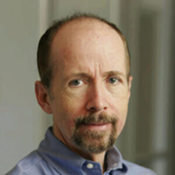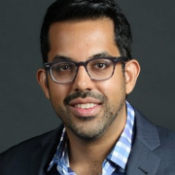Wharton Human-AI Research hosted AI and the Future of Work, a two-day academic conference exploring how artificial intelligence is reshaping the workplace. Held on May 21-22, 2025, the conference brought together leading scholars, industry researchers, and practitioners to discuss the evolving relationship between AI and employment.
— Presentations —
Industrial AI in America: Microfoundations of the Productivity J-curve(s)
- Kristina McElheran, Assistant Professor, University of Toronto
Some Economics of Capital Accumulation in the Age of AI
- Seth Benzell, Assistant Professor, Argyros College of Business and Economics, Chapman University
Creative Markets in the Age of Generative AI
- Eric Zhou, PhD Candidate, Questrom School of Business, Boston University
GenAI Usage Disclosure: Ethnographic Analysis
- Karthik Nattamai Kannan, Assistant Professor of IT and Operations Management, Cox School of Business, Southern Methodist University
AI Exposure on Workers’ Career Path: Evidence from U.S. Workforce
- Gavin Wang, Assistant Professor, University of Texas at Dallas
Mapping AI Use Cases: A Large-Scale Analysis of Job Postings
- Simon Lowe, Economist, The Burning Glass Institute
AI-Enabled Job Markets and Market Participation
- Sarah Bana, Assistant Professor, Chapman University
Sanity Checks for Testing the Reliability of LLMs in Opinion Surveys
- Terrence Neumann, PhD Candidate, McCombs School of Business, University of Texas at Austin
Unpacking the Impact of Algorithmic Management on Discretion in Hotel Housekeeping Work
- Christine Riordan, Assistant Professor, University of Illinois at Urbana-Champaign
Aggregate Productivity Gains from AI: A Sectoral Perspective
- Francesco Filippucci, Economist, OECD
LLM Time Machines: Valuing Digital Goods over Time
- Avi Collis, Assistant Professor, Carnegie Mellon University
Human + AI in Financial Reporting: Evidence from the Field
- Jung Ho Choi, Assistant Professor of Accounting, Stanford Graduate School of Business
AI Reasoning Models, RAG, and the Future of Legal Practice
- Beverly Rich Ingersoll, Partner, Messner Reeves LLP.
The Effect of Gunshot Detection Tech on Policing Practices
- Brad Greenwood, Professor, George Mason University
AI Assistance Can Enhance Skill Development
- Benjamin Lira, Doctoral Candidate, University of Pennsylvania
Overconfidence in AI, Underconfidence in Worker Expertise
- Anna Kawakami, PhD Student, School of Computer Science, Carnegie Mellon University
Designing Human-AI Collaboration
- Alex Moehring, Assistant Professor, Purdue University
Generative AI as Routine-Biased Technical Change?
- Patryk Perkowski, Assistant Professor of Strategy and Entrepreneurship, Sy Syms School of Business, Yeshiva University
Incentive Issues in Developing LLM Fact Checkers
- Manmohan Aseri, Assistant Professor in Decision, Operations & Information Technologies, Robert H. Smith School of Business, University of Maryland, College Park
Generative AI and the Nature of Work
- Frank Nagle, Assistant Professor, Harvard Business School
Measuring New Work in the Age of AI
- Isabella Loaiza, Postdoctoral Associate, MIT Sloan
Advancing AI Capabilities and Evolving Labor Outcomes
- Yong Lee, Associate Professor, Keough School, University of Notre Dame
Government Policy and Innovation Outcomes
- Milan Miric, Associate Professor, USC Marshall School of Business
How Personality Influences Coding Performance of LLM Agents
- Chenchuan He, PhD Student. University of Delaware
Simulating the Survey of Professional Forecasters
- Anne Hansen, Senior Financial Economist, Richmond Fed
Gen AI and Organizational Structure in the Knowledge Economy
- Wei Chen, Associate Professor, University of Connecticut
AI at the Crossroads: Light Bulb, Dynamo, or Microscope?
- David Byrne, Principal Economist, Federal Reserve Board
— Chaired by Wharton Faculty —
— Conference Coordinator —

Carol Heller
Program Coordinator
Wharton Human-AI Research





